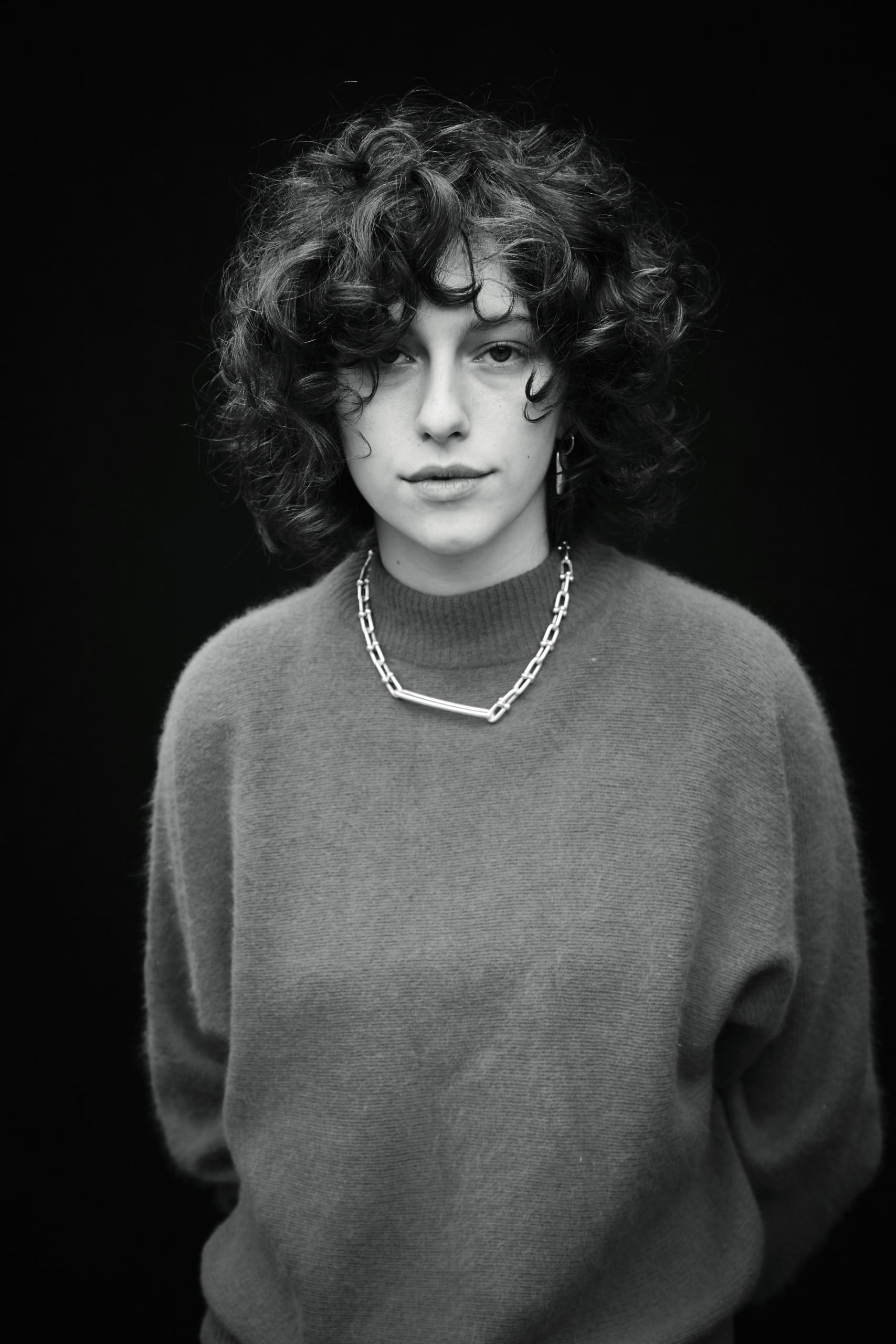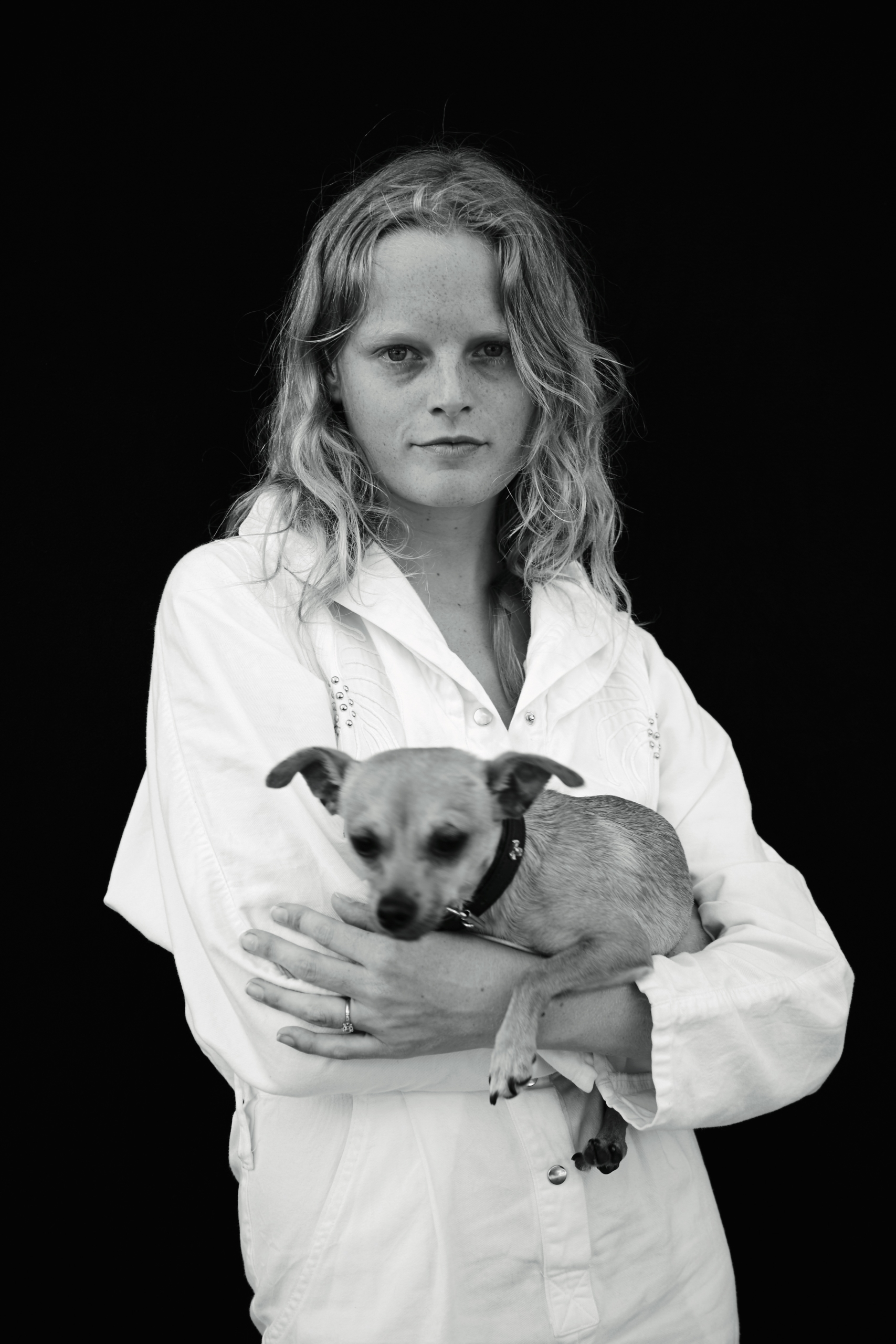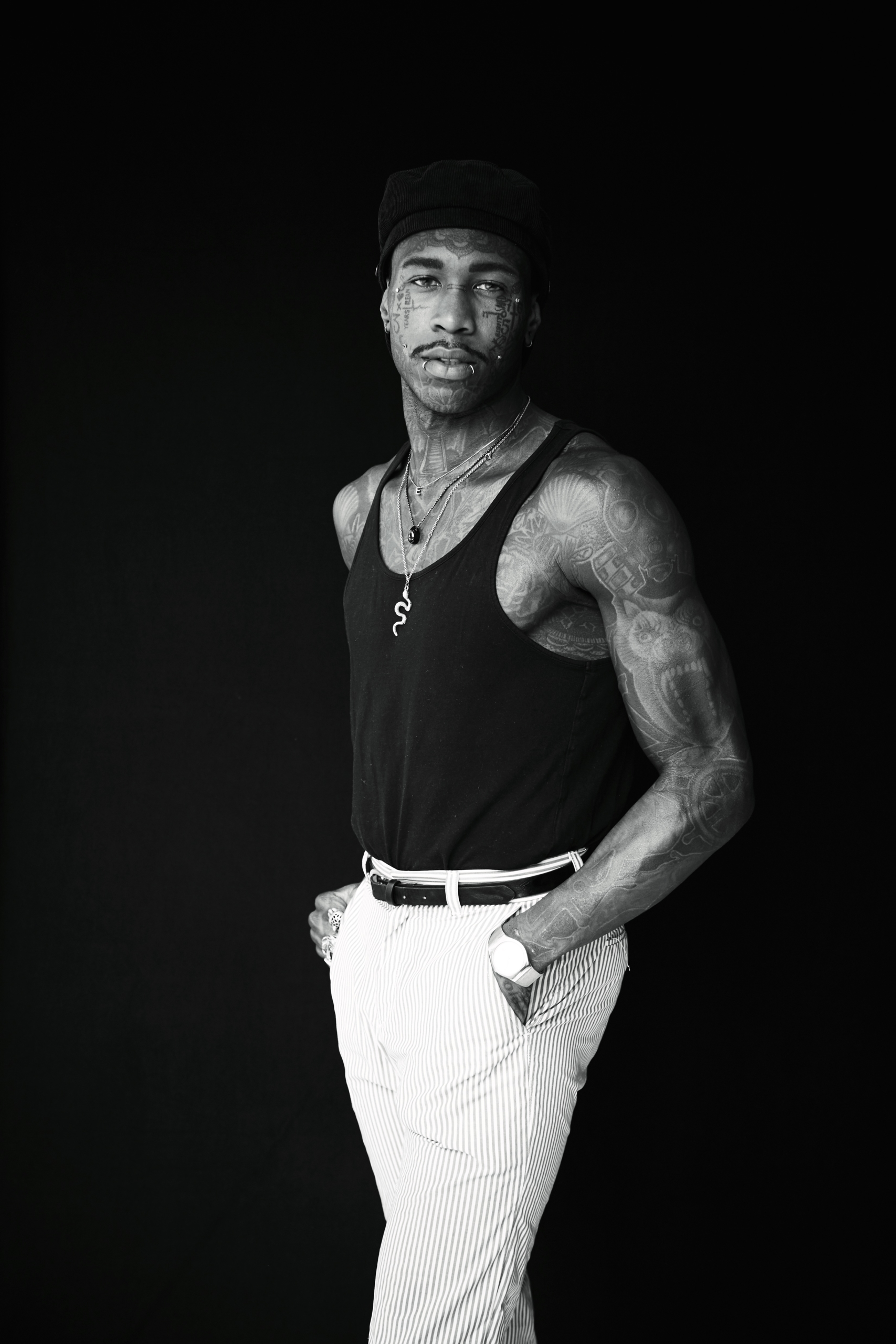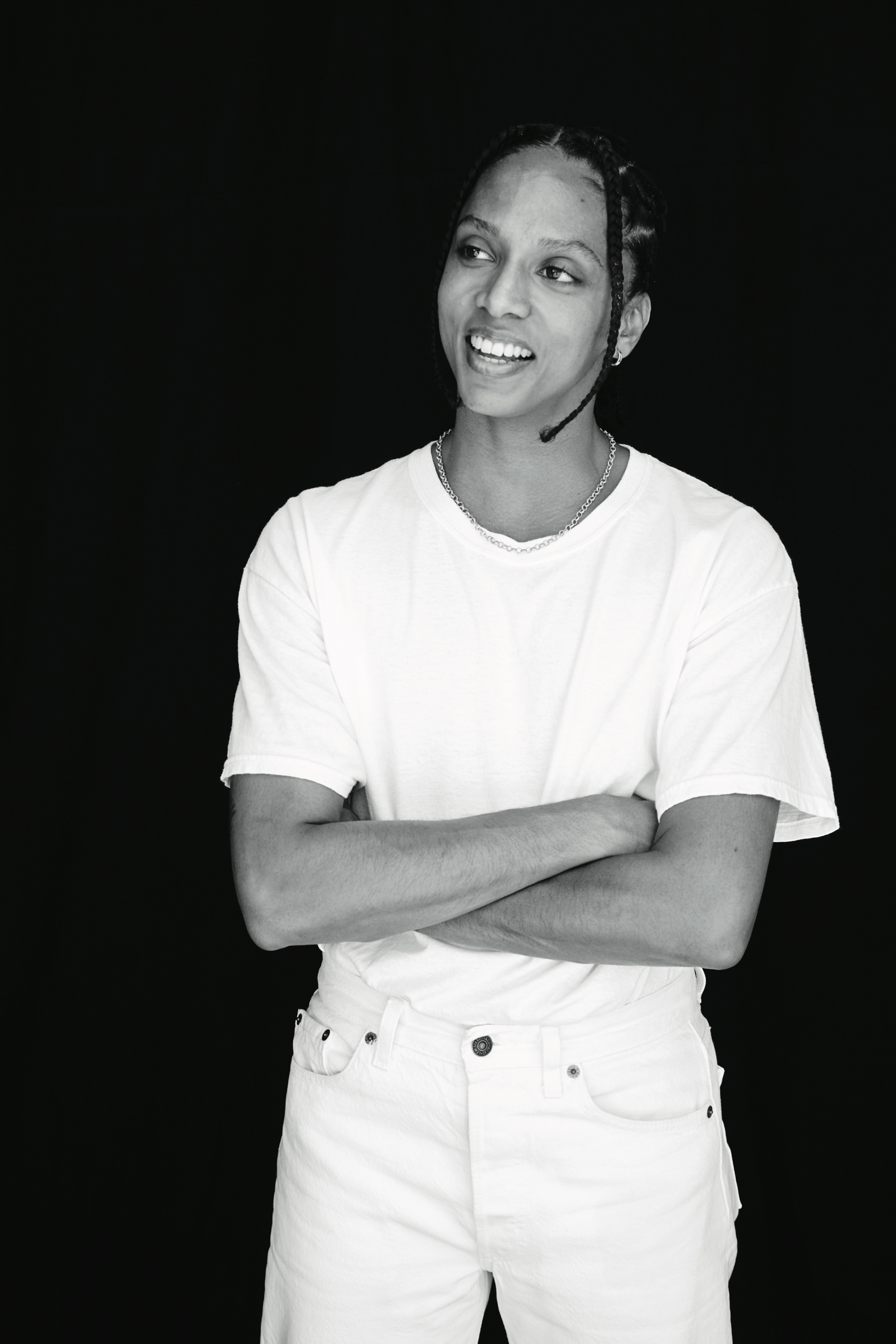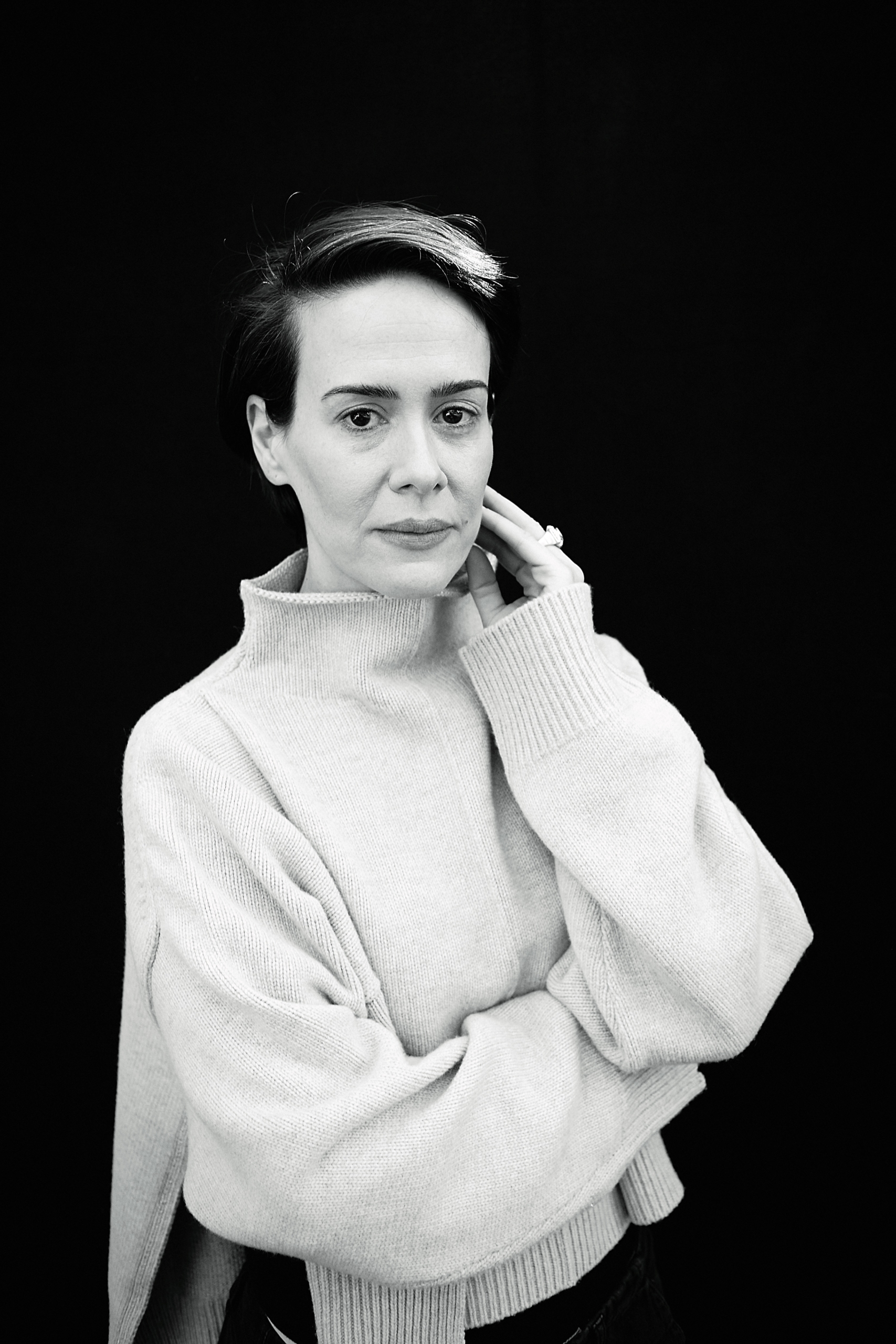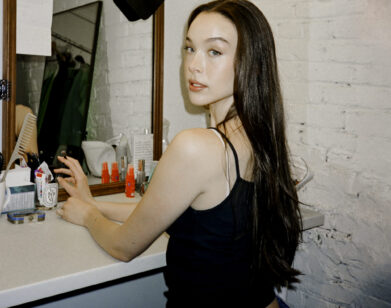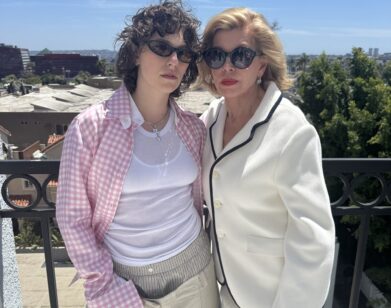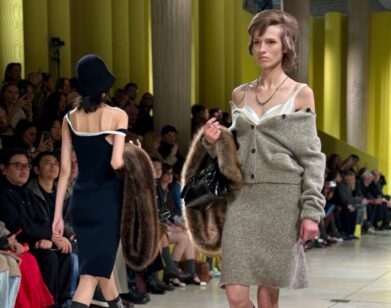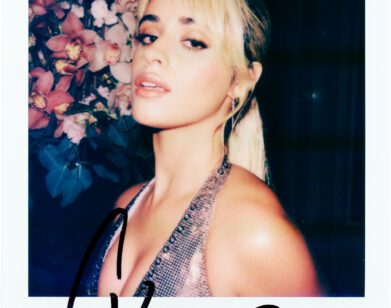queer america
iO Tillett Wright and King Princess Examine Queerness in Today’s America
When, in 2018, iO Tillett Wright arrived to take my picture for his staggering new book, Self Evident Truths: 10,000 Portraits of Queer America, a project he started in 2010 against the backdrop of Prop 8, he texted me to come downstairs. I met him outside my office on the street, where he was already busy setting up a black scrim. “Put this on,” he said, tossing me a T-shirt with the name of the project printed across the front. He’d come from shooting someone else, and was in a rush to catch a flight from New York back to the home he was essentially building with his own hands in Joshua Tree, California. Like a Fitzgerald or Hemingway character, or, perhaps more accurately, like a charismatic mashup of all the great literary hustlers, Tillett Wright can whirlpool into any room—always determined, always passionate, always ready—and leave behind him a wake of breathless excitement. In each of his many creative endeavors—not least among them his hit memoir (Darling Days, 2016) and podcast (The Ballad of Billy Balls, 2019)—Tillett Wright uses the adversity he has known as his power, channeling his own pain into a rallying cry for those whose voices seldom get heard. With Self Evident Truths, out now through Prestel, he has done it again, shining a light of solidarity on the queer community while also squinting at it, calling into question its very nature. Tillett Wright recently got on the phone with his friend, the musician King Princess, whom he met, fittingly, when he rolled up, presumably in a rush, to take her picture. —NICK HARAMIS
———
KING PRINCESS: iO, I did not prepare anything.
IO TILLETT WRIGHT: What do you even need to prepare to talk to me?
PRINCESS: I don’t know. I’m in Interview magazine as an interviewer and I assume most interviewers have questions. I don’t have any questions, but I do want to talk about your photo project.
TILLETT WRIGHT: What do you know about it?
PRINCESS: Well, I know that when we first met, you rolled up to my apartment and you had your little camera, and we sat in my courtyard. I had worked with your partner [the hairstylist Rachel Lee], right? So I knew of you, and I’d seen you on Catfish.
TILLETT WRIGHT: Oh, gosh.
PRINCESS: You rolled up to my apartment and you were like, “Yo, I’m going to take a photo of you for this thing.” I didn’t really know what it was. Then you explained it to me. I was like, “That is so many photos that have been taken of queer individuals, it may be the most ever in one consolidated book.” I think you may have set the Guinness World Record for most queers in one book.
TILLETT WRIGHT: I think it’s actually the most photos of any single group of people in history. I think this might finally be my moment to get in the Guinness. I think this might be it.
PRINCESS: You know, when you’re a young gay person, or queer person, or anything in between, you can’t go to a school library and be like, “Gay. Where’s the gay?” Do you know what I mean?
TILLETT WRIGHT: Now you can. Now there’s a 600-pound brick that you can check out of the library and see 10,000 of your family members.
PRINCESS: We are, obviously, a long way from queer culture, queer history, and queer representation being taught in schools. We’re a long way from the history books being amended to include us adequately. What do you hope, especially for kids dealing with their sexuality and gender—what do you hope for this book to do?
TILLETT WRIGHT: I think that queer issues have gotten really politicized, really siloed, really separated, and really dogmatic. There’s a certain language that you have to use for people to feel safe. There’s a certain way of addressing people for them to not get angry. You and I come from the same part of the nexus of queer culture. We come from New York, the kind of New York where a drag queen will put a fucking stiletto through your eyeball. She’s not going to be like, “You fucked up my pronoun.” There’s a rawness. You and I come from walking the same streets that RuPaul figured out how to lay a wig on. We come from the origins of all this shit in a different way where being queer wasn’t about having people tiptoe around you. It was about creating a family when your own family failed you.
PRINCESS: 1,000%.
TILLETT WRIGHT: To me, that is what queer culture is about. If the world doesn’t have your back, if the world tells you you’re sick and you’re fucked up, where do you go? You go to your chosen family. You go to the ones who are logical, not biological. That, to me, is what this whole project is about. You are one of the few people who was born into the same environment that I was, and you inherently understand the same value of what queerness is as a family unit, not as a political ideology. And yes, being queer is inherently political, but to me, this book is something that you give to somebody who needs a reminder that by nature of their queerness, they are part of the family, they are safe, they are welcomed, and they will be protected.
PRINCESS: I didn’t have a community of female-presenting people growing up. I had gay men. I had queens who had lived through the ’80s, who had watched their families and friends die. I was surrounded by this type of queerness where all you had was comedy—the ability to laugh together. That was how I grew up. I think that the thing that I needed the most was a hot, sexy queer person. Even now, we only have the kind of augmented perspective of queerness that is straight-washed by the media. We’re still assigned a wardrobe and an attitude. With this book, you can, quite literally, rifle through it and find someone who you relate to. And that’s fucking cool. Queerness is ever-changing, it doesn’t look a certain way, and it can’t be stereotyped. And I think that’s fucking sick.
TILLETT WRIGHT: Exactly.
PRINCESS: You and I are so similar in that we are very sensitive to this idea that we don’t learn about our culture as queer people. Because of that, a lot of the young generation acts as though we are the first people to have experienced oppression as queer people. And it’s like, “Wait a second. Our identities used to be illegal, they used to stop us from getting jobs, housing, food.” For many of us that’s still the case, but I think learning that history is really important. I don’t know what your thoughts are about queer history. It’s a huge thing for me. I think everybody needs to learn.
TILLETT WRIGHT: I very much agree. I started this project in 2010. It took exactly 10 years to come around. Back in 2010, there was no conversation about sexuality as a spectrum. People were like, “Oh, Kinsey.” And I was like, “No.” I did a TED Talk in 2012, which was called “50 Shades of Gay.” Basically, the premise is that we are no one thing at any point, and nothing forever. Not only am I on a fluctuating spectrum of sexuality today, but in a week it’s going to be different, and in a year it’s going to be different. And that’s not to say that I’m going to be any less queer in a year. It just means that this idea of queerness as a fixed point on a continuum is absurd. It’s like, your hair grows, your skin changes, you get wrinkles. Everything grows, evolves, and changes. So do our brains, and so does our sexuality—and oftentimes so does our gender. That was a foreign concept to most people when I first did this project, so I would ask them this question, or it was three questions on the release form. You did it. It’s like, “Can you rate your attraction on a scale of one to 100?” Essentially, how gay are you? And then, “Can you rate your gender on a scale of one to 100?” And then, “Can you rate how sexual you are on a scale of one to 100?”
PRINCESS: I had, like, just the mid-life crisis.
- Hanne Gaby Odiele.
- Yves.
TILLETT WRIGHT: You had a full crisis, and that existential crisis is the point because those numbers are never going to be released to the public. I’m never going to show anybody what anybody’s numbers were. It was just so that people could be afforded the opportunity to be asked that question because oftentimes we’re not. People are like, “What are you?” And now there’s, “Are you pansexual? Are you a romantic? Are you queer? Demi-sexual?” In the beginning, when I started asking people those questions, the older gen was like, “Nah, I’m one-hundred percent dyke, I’m one-hundred percent gay, bitch.” They would always revert to this kind of militant response because they had to embody that to survive. I feel like your generation now, because it’s not as dangerous to be something other than straight—obviously, it’s still very dangerous to be trans, but your generation is very comfortable being somewhere on a fluid continuum and a fluid spectrum. I’m very excited about that. Whereas an older generation had to survive so much more, so they’re much more rigid. I’m curious what your generation is going to do with this idea of us as a community, or this idea of the rainbow actually embodying a community, because it feels like it’s more fractured than it ever has been.
PRINCESS: It’s completely fractured. I knew that I wasn’t a woman, but more simply, I just knew that I loved sports. I was just like, “I like sports. I like to wear a gendered sports outfit because it’s the only time in my day that I don’t feel like actively fucking screaming.” I just knew there was something about the wardrobe and presentation that was linked to my sexuality, but I didn’t have the vocabulary. Now I’m 21, but my sister is 13, and this little bitch understands gender presentation more than even I do at this point in my life. It’s crazy. My close friends were chill with me being gay. Everyone knew I was gay, but there were whispers. It was like, “She changes in the same locker room as us.” That shit was going on. These kids are not concerned, they’re not threatened by sexuality; it’s not foreign anymore to a lot of these kids. It’s interesting talking to my sister because I’m like, “Are you dating anybody? Are you dating any boys?” And she’s like, “No, but my friends, blah blah and blah blah, are dating.” I’m like, “Wait, like gay dating?” And she’s like, “They’re dating. What’s the problem?” I feel like I’m the asshole.
TILLETT WRIGHT: You see how fast it goes? Suddenly you’re old.
PRINCESS: Another thing that really interested me was the response to when I said, “Okay, guys, I don’t know if y’all noticed, but I am fully not a woman. I exist somewhere in between. There is some funky stuff going on. I love it. It makes me who I am.” But then you’ve got this manic, lesbian response of like, “We lost another one.” But I’m like, “You never had me in the first place.” You know what I mean? It’s this idea that somebody who has accepted their gender identity not being on the binary is now lost.
TILLETT WRIGHT: Yeah, It’s really devastating.
PRINCESS: Obviously, it doesn’t fucking bother me, because I’m like, “Y’all are stupid.” But it’s tough for a kid who has finally gotten comfortable with the idea that they’re a lesbian or homosexual, and then all of a sudden you’re like, “But wait a second. There was something I wasn’t investigating.” In that discovery you risk getting divided from your own community.
TILLETT WRIGHT: That’s what happened to me.
PRINCESS: The division within our community is very scary. I also think there’s so much attacking and policing of each other that it’s, like, do you not realize that we are quite literally still being hunted and murdered? It’s so nuts to me. I wish I could just ban queer people from yelling at each other on the internet.
TILLETT WRIGHT: Honestly, part of me thinks that that’s because something really organic is revealing itself, which is that the queer community essentially exists only in opposition to this idea of being 100% straight, 100% cis. Essentially straight cishet people have been like, “Anything outside of that goes over here. And you are part of this LGBT.” Just the acronym alone, it has nine fucking letters in it, and symbols and shit, because it’s stretching and way overburdened with trying to encompass far too many identities and far too many realities. The truth of what’s happening, the truth of why there’s so much infighting is because it doesn’t work as a concept. It just doesn’t make any sense. The truth of the matter is, in my opinion, having spent 10 years photographing people, is that there’s overwhelming diversity within the community. The fact that we have white supremacists, the fact that we have cops, the fact that we have radical leftist activists, the fact that we have Antifa, the fact that we have 90-year-old Republicans, and radical democratic socialists and communists—we have all of these things within one community. They are all in this book. That fact alone shatters the notion that we can exist the way that we have been positioned to exist by cishet people anymore.
PRINCESS: I was watching the Republican Convention, which, if I may, looked so fucking cheap. It’s insane to me. It managed to make the White House look like a Motel 6. I thought it was interesting that a fucking gay guy got up who was very pro-Trump. He didn’t talk about being gay in that specific speech because he was focused on talking about how we’re not involved in any wars, and all this other bullshit. He is a homosexual and he has done these ads for Trump where he’s like, “I’m a homosexual for Trump.” It blows my mind. It’s just worth noting that our vice president truly has a hatred for gay people.
- Cara Delevingne.
- Janaya Future Khan.
TILLETT WRIGHT: That can only come from within the closet.
PRINCESS: You brought up this point about how our community has all of this deviation that is like, “Yes, there are fucked-up people in our world as well. There are fucked-up queer people who support Trump, and all this other shit, but they’re still a part of our community.” It destroyed this idea that we are in any way unified. We’re just people. We’re just people who have been grouped together over time by, basically, who we want to fuck. There’s probably a fuck-ton of queer Republicans in this country.
TILLETT WRIGHT: The white gay Republican faction, the white cis gay Republican faction, and the white cis lesbian Republican faction, it’s big. They just haven’t had the space to come out. I feel like we do ourselves a disservice when we pretend that side doesn’t exist. This book is a document of the idea of a chosen family. It’s also proof that the idea of us as any one thing, as a cohesive community, is shattered. Literally, I’m looking at the cover of the book. There are stacks of them all over my studio. I’m looking at the cover right now and there’s a 90-year-old guy from Denver, Colorado. I was so stoked. I think he’s 89. There’s a cop from Texas, a white woman. There’s a Black soldier. There are two Black trans women, a white guy from Boulder covered in tattoos, and a cowboy, I think he’s from Fargo, North Dakota. These people have nothing in common, except for the fact that straight people tell them that they are different.
PRINCESS: I love that this book is a light read of our own culture. Queer people have a link. We have thought, and many enclaves of queer people, especially in New York, and in the ball scene and the dyke scene or whatever, have languages and dialogue and vernacular.I think that this is a way that we’ve been forced to communicate by oppression, but it’s also been a way through which we’ve found joy. In this book, there is a dialogue happening when you read it, which is that you have to really ask yourself, in every image that you look at, “Who is this person? Are they the same as me? Are they even similar to me? Have I been thinking that everyone in my community is similar to me because I live in L.A., and everyone here has the same belief system?”
TILLETT WRIGHT: If you need to go to the library and see the people, you can. If you need to reassess your people, you can. I’m very proud of that fact. It’s like, there’s stage one where the kid in Oklahoma is going to feel safer having seen this book and knowing that they have a tribe and a family. And there’s stage two, people like us, who are a little bit further along in our assessments of where we belong in the world, who will look at it and see the deeper coding.
PRINCESS: If you’re J. K. Rowling, you can go to the library and flip to my page and be like, “Eww. What the fuck.”
TILLETT WRIGHT: “I can’t handle this beauty.”
PRINCESS: “We lost another one.”


